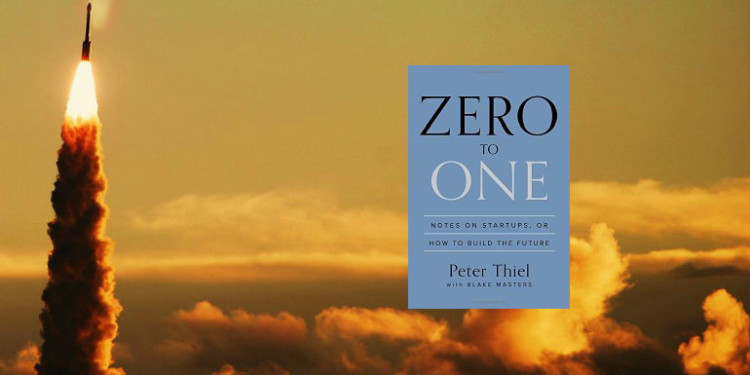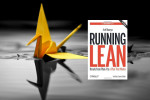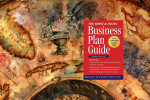Finding Secrets

To build a great company, one that solves a new problem, take a contrarian approach to commonly held business wisdom. Seek out secrets to which others are blind. Build a monopoly; direct competition will lead to conformity and erode all profits.
Zero to One: Notes on Startups, or How to Build the Future isn’t a how-to book on startups. Peter Thiel doesn’t list best practices or provide a handy framework for building a business. The book is sometimes philosophical, sometimes political, and always focused on individual thinking. Thiel argues against conformity in all its manifestations: competition in the marketplace, education, business advice.
There are many themes in the book: the importance of sales, marketing, and distribution; determining the right mix of computer and human involvement in products and services; the longevity and characteristics of entrepreneurs, and startup culture. Common threads are the search for secrets which point to long-lasting monopolies, living by the Power Law, and avoiding the pessimistic pull of conformity and conventional thinking.
One question
What important truth do very few people agree with you on?
Thiel presents himself as a contrarian, looking towards the future where the world looks very different than it does today. This question seeks answers that are “different ways of seeing the present…[which is] as close as we come to looking into the future.” You can’t create the future by operating within the dominant paradigm and improving what is already available.
Copying things that have been proven effective is “going from one to n”–horizontal progress. Thiel has in mind doing entirely new things: “going from zero to one” making vertical progress. Horizontal progress is globalization. Vertical progress is new technology.
Post-crash thinking
What valuable company is nobody building?
Entrepreneurs and business people who were traumatized by the dot-com bubble bursting in 2000 left a legacy of four lessons that are prevalent in business still today: make incremental advances, stay lean and flexible, improve on the competition, and focus on product, not sales. Thiel dismantles this startup dogma with his own principles: it is better to be bold than trivial, a bad plan is better than no plan at all, competitive markets destroy profits, and sales matters as much as the product. Each of these principles were, to Thiel’s mind, a risk averse reaction to financial loss and uncertainty. Thiel spends an entire chapter explaining why ignoring sales, distribution, PR, and marketing is a deadly mistake (if you built it, they most likely won’t come).
Competition kills profits
If you can recognize competition as a destructive force instead of a sign of value, you’re already more sane than most
Thiel argues that the best business to build is a monopoly because under perfect competition, all profits are eaten away. Because monopolies create new, differentiated products and services, they provide a net benefit to society. He notes several contradictions in our attitudes towards monopolies: the government has a department which encourages and enforces monopolies (patents) and one which seeks to break them apart (anti-trust); capitalism’s goal is the accumulation of capital but competition erodes all profits to level the playing field.
A key theme in the book is that it is better to create a differentiated monopoly than it is to seek to improve a business id that is already present in the market. Thiel discusses monopolies from many angles to make the point–typically arguing against conformity in its many guises. For Thiel, competition connotes a specific type of ideology and thinking. Clearly, monopolies are competitive entities, but they don’t seek to engage on established and well trodden paths.
Conformity in education
We teach every young person the same subjects in mostly the same ways, irrespective of individual talents and preferences
Thiel diagnoses our education system as one of the root causes of the inability to build zero to one businesses. As students encounter ever increasing levels of competition (a homogenizing force), they become generalists. The education system creates conformists by funneling everyone through the same set of classes with equal emphasis on each skill. The emphasis on competition in education has the same result with students as it does in the market with companies: sameness.
Rivalry causes us to overemphasize old opportunities and slavishly copy what has worked in the past
Thiel’s advice is to “do one thing” in your career–one thing that is “sharply different” from everyone else.
Monopolies
Thiel has a check list of what makes a monopoly (and therefore makes a good investment):
Proprietary technology – The most effective edge because it makes your product very difficult or impossible to copy. Do you have a breakthrough technology that is better than an incremental improvement?
Network effects – The multiplying effect of value when new participants join a platform or service.
Economies of scale – The ability to spread fixed costs over increasing sales volume.
Branding – Although a technology business cannot be built on brand alone, this cohesive factor can be a multiplier to the previous three assets.
Timing is a key consideration as well: is it the right time to start the business and will the business be defensible in 10 to 20 years?
Every startup should start with a very small market
To build a monopoly, begin by dominating a small market rather than aiming for a large one. Thiel gives an example from Paypal–focusing on Ebay power sellers initially and then build out from there.
Sequencing markets correctly is underrated, and it takes discipline to expand gradually
Thiel warns against being enamored with “disruption”–it’s better to create something new that is not in opposition to established industries and ways of thinking. Because disruption attracts attention, it puts a monopoly strategy at risk by sending loud signals to the market about your strategy.
if your company can be summed up by its opposition to already existing firms, it can’t be completely new and it’s probably not going to become a monopoly
The Power Law
The Pareto Principle and the Power Law, which describe so many business dynamics and outcomes, reveal some interesting conclusions for Thiel. One market and one distribution strategy will dominate all others–Thiel tells us to look for singularities based on the power law distribution.
The biggest secret in venture capital is that the best investment in a successful fund equals or outperforms the entire rest of the fund combined.
Here again he attacks the idea of diversification and spreading one’s bets. Although we are taught to spread our bets and cover a wide range of alternatives based on the idea that one or two of them will succeed and average out the losers, Thiel points out that life is not amenable to diversification. You cannot diversify your career and prepare for and pursue multiple professional options simultaneously.
You should focus relentlessly at something you are good at doing, but before that you must think hard about whether it will be valuable in the future.
The Power Law also dictates that the early decisions in the lifecycle of a startup have a disproportionate effect on success–you can’t fix a startup that has made bad decisions early on so be careful with your first steps.
The Future
Thiel is a proponent of the adage “the best way to predict the future is to create it.” A “definite” view to his mind sees opportunity in the future and moves towards it. The idea of doubling down on what you’re good at and believe in, rather than attempting to be good at everything, is the unifying thread in his opinions about our education system and pursuing monopolies.
He notes that visionary projects are often dismissed today in favor of short-term initiatives. Grand visions wither in the face of what Thiel calls, indefinite pessimism–a hazy view of the future where all things fall apart. This lack of future vision is a causal factor which reduces our ability to think big. Thiel favors the long view and points out that although long term planning has been diminished due to the popularity of incrementalism and short-term improvements, it is what can yield huge monopolistic benefits.
Thiel discusses how one’s perspective of the future leads to how one approaches the present. Considering the likelihood of solving three types of problems available to solve in the world determines your level of optimism in the future: 1) problems that can be solved with minimal effort; 2) problems that can be solved with a substantive amount of effort; and 2) problems that cannot be solved no matter how much effort we put forth. If you believe that all #2 problems have been solved, then there isn’t much motivation to think big because all that’s left are the problems that cannot be solved no matter how hard you try. Thiel believes that incrementalism, risk aversion, complacency, and the fact that most of the earth’s surface has been explored have all combined to decrease the belief that there are hard problems (and by extension secrets) still within reach. Complacency forces us to believe that everything is as it should be and there are no moon shots still available.
Secrets
The book’s philosophy is a push outwards to frontiers where mysteries lie awaiting discovery. Thiel urges us to question convention and find unique opportunities which are an extension of our own special talents and desires. Breaking free from the gravity of sameness, conventional thinking, risk aversion, and pessimism opens your eyes to the secrets of which no one else is aware.
Be yourself and think happy thoughts!








